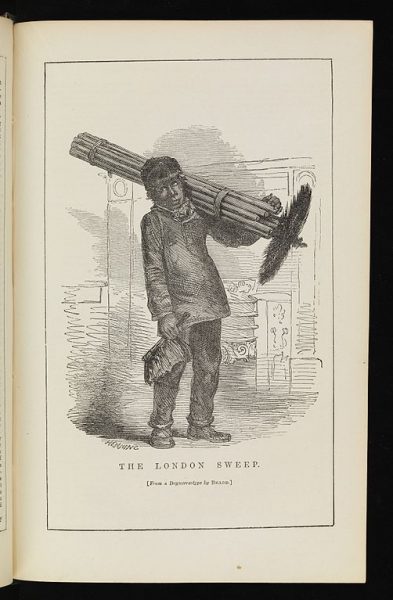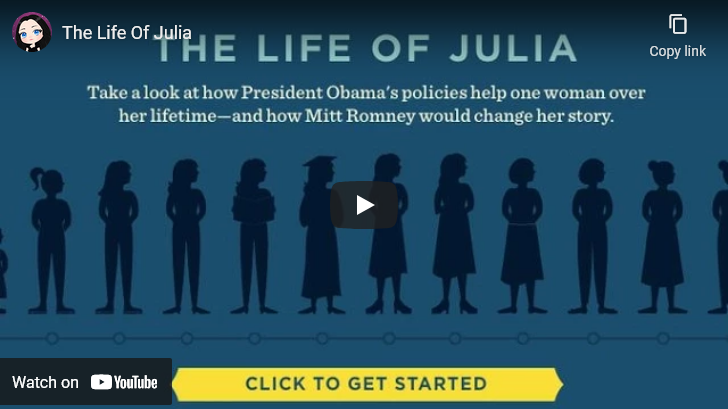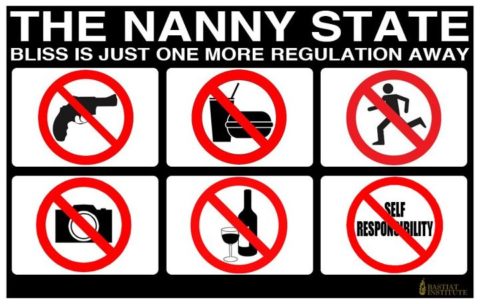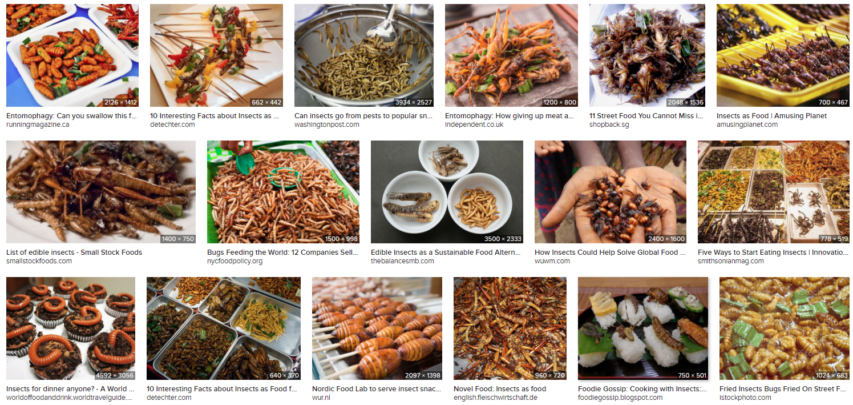By any conventional definition, gambling is not a public-health issue. It is not an infectious disease. It is not an environmental hazard. And its association with poor health is tenuous and indirect. Losing a lot of money might be bad for your health in some way. But if that is the argument, you might as well redefine compulsive shopping or stock trading as public-health issues, too.
Nevertheless, the public-health lobby is keen to take over this area of policy and PHE ended its days with the following conclusion: “The evidence suggests that harmful gambling should be considered a public-health issue because it is associated with harms to individuals, their families, close associates and wider society.”
By this definition, anything that can cause harm to individuals and / or other people is a public-health issue. This would make every health problem and most social problems public-health issues. It spreads the net across such a vast expanse of human behaviour that it renders the term “public health” totally meaningless. Still, this is very much in keeping with the mission creep of a sector that claims everything from poverty and war to housing and climate change can be public-health issues.
It can be argued that almost everything has an effect on health, but what is the point of making everything a public-health issue? What expertise do people with a masters in public health have that makes them better at solving complex social and economic problems than anyone else? And as we saw during the pandemic, when the public-health lobby spreads itself too thinly, it becomes incapable of doing its day job. The World Health Organisation and Public Health England, for instance, were both far more interested in pushing for nanny-state interventions than in preparing for pandemics.
But if we see the modern public-health movement for what it really is – a paternalistic, bourgeois crusade for moral reform – it becomes obvious why gambling is in the crosshairs. A classic target of puritans, gambling will fit in well alongside the other supposed public-health “epidemics” of our age: gluttony, sloth, smoking and the demon drink. It wouldn’t surprise me if usury and lust were its next targets.
Christopher Snowdon, “No, gambling is not a “public health” issue”, Spiked, 2022-08-25.
November 27, 2022
QotD: Gambling is not a “public health” issue
October 9, 2022
The Nanny State’s manifold failings
Christopher Snowden scoffs at the pro-Big Nanny maunderings of Matthew Parris in the Spectator recently:

The London Sweep (from a Daguerreotype by BEARD).
Image from London labour and the London poor: a cyclopaedia of the condition and earnings of those that will work, those that cannot work, and those that will not work, 1851, via the Wellcome Collection.
A few years ago I was on the panel at the Battle of Ideas in London. I can’t remember what the topic was exactly, but it was something like the sugar tax or e-cigarette regulation. Rather than deal with the merits of these policies directly, I noticed that my opponents talked in general terms about the good that government can do, referencing the abolition of slavery and the ban on children going up chimneys.
Given all the regulation of recent decades, I found it telling that they had to go back 200 years to find laws that everyone can agree were jolly good. If I had been presenting the case for anarchism, their arguments might have landed, but since I was making the more modest case that perhaps there might be one or two laws in existence that are unnecessary and illiberal, their approach looked more like a diversionary tactic.
Matthew Parris did the same thing in last week’s Spectator. Thanks to the Royal Mail strike, it only landed on my doormat today, but you can read it here. It is titled “Maybe Nanny does know best”. Confusingly, Parris does not use the term “nanny state” in the conventional sense meaning lifestyle paternalism, but as a catch-all term for any government regulation whatsoever.
His target is Liz Truss whom Parris dislikes even more than he disliked Brexit and Boris Johnson. Unless Rory Stewart or Nick Clegg somehow become Prime Minister, I suspect that Parris will be demanding the head of whoever is in charge of the government until his dying day. He is not impressed by Truss’s “dash for growth”.
Parris’s argument is that Big Government is the friend of economic growth, not its foe. He confesses that he, like Truss, once held the view that the “dead hand of the state” stifled growth and led to inefficiencies but that he has grown out of all that stuff now and, with two gin-scented tears trickling down the sides of his nose, he welcomes his bureaucratic overlords.
Why? Because, a hundred years ago, the government gave women the vote and allowed them to work.
There was a time not so long ago when a certain group – half our potential workforce – were all but disqualified from contributing to Britain’s GDP. This group were called “women”. Women were generally unable to own property, or to play much more than a menial role in business (let alone politics, where they could not vote). So who helped unleash women’s potential, gave them rights in the workplace, stopped employers throttling their potential by restricting them to mindless occupations? Was it free trade? Was it big business? Was it competition? Was it Adam Smith’s “Invisible Hand”? No. Step forward Nanny. Nanny it was – legislation, the House of Commons, the first world war, the state – who commanded these things, driven in part by the forces of democracy.
The idea that women only started “contributing to Britain’s GDP” — i.e. working for pay — after the First World War is historically illiterate. It may have been true of the upper class and some of the middle classes, but for all other households it was a financial necessity for women to work, whether in agriculture, textiles, domestic service, pubs or whatever. It is true that more men were employed than women, but women were pregnant a lot of the time and had an enormous amount of unpaid work to do. They were certainly never “all but disqualified” from working, except in a few sectors such as the police force.
And who was it who banned women from owning property and voting in the first place? It wasn’t Adam Smith. It was the government, or, as Parris, would have it, the “nanny state”. So which nanny state are we supposed to be thankful for — the one that gave women the vote for a hundred years or the one that denied them the vote for hundreds of years?
Nanny had been busy since the 18th century, when in the Papists Act of 1778 she decreed that Catholics should not be excluded from key parts of the economy. She was still busy in the 20th century, starting with the Sex Disqualification (Removal) Act 1919, and later the 1944 Education Act outlawing the barring of married women from teaching.
Again, who excluded Catholics from key parts of the economy in the first place? Who barred married women from teaching? That’s right, it’s our old friend Big Government, the arsonist that Parris treats like a fireman.
August 29, 2022
“What did you do in the Covid War, Daddy?”
Janice Fiamengo hopes that the future isn’t female, for the sake of all of us:
If Covid was a war, as it was frequently depicted as being, it was one in which none of the typical masculine virtues required by war were in evidence. Gone was the valorization of stoicism, courage, forgetfulness of self, rational risk assessment, and the curtailment of emotionalism. In their place came generalized anxiety, self-righteous vindictiveness, and the longing for (an unattainable) safety at all costs.
In his book United States of Fear: How America Fell Victim to a Mass Delusional Psychosis, American psychiatrist Mark McDonald noted the disappearance of men from the Covid state as a key factor in our descent into social psychosis. Of course men remained in existence, but their roles were reduced to enthusiastic compliance with even the most trivial of health rules.
As a psychiatrist with extensive clinical experience, McDonald was uniquely positioned to diagnose some of the underlying causes of Covid panic. He notes in the book that women, evolved to be hyper-attentive to the needs of infants and simultaneously aware of their own vulnerability as maternal caregivers, tend to be far more susceptible to anxiety disorders than men. Women evolved over millennia to look to men for protection of themselves and their children (p. 30-31), and men evolved to provide it.
Yet as Covid experts encouraged us all to worry about the safety of our families, with daily case counts and endless updates on (de-contextualized) death numbers, “men failed […] dismally in their duty to provide a sense of safety and security for the women in their lives” (p. 41). When some women insisted fearfully on rules to protect themselves and their loved ones — even irrational rules such as outdoor masking and limitations on how children played together — men, whose traditional role has been to “calm and ground women’s fears” (p. 39), either did nothing or went along. Some men, of course, led the charge.
The emasculation of men had been prepared for a long time, and under Covid it came to fruition. Men could not reassure the women in their lives or stand up to the infantilizing Mother State. They could not speak out to put the Covid threat in perspective. Most of them couldn’t even decide independently whether to go to work in the morning. McDonald is well aware of the social forces that have contributed to the feminization of men — he notes especially how “healthy expressions of masculinity […] have all been redefined as universally unhealthy” (p. 52) — but even he does not fully understand the depth of the anti-male attack that prepared the ground for Covid-enforced male passivity.
For decades now, with the advent of no-fault divorce, mother-favoring custody laws, the determination to stamp out (subjectively defined) alleged sexual harassment, and the mandate to “Believe Women”, it has been made clear to men that their lives and careers remain intact entirely at the pleasure of feminist ideologues or potentially vengeful ex-wives. One wrong move, an inappropriate comment, a gaze that is too intense, a tone-deaf request for a date, a sexual encounter where the woman is left unhappy, or merely having married the wrong woman, can lead — and too often does lead — to the ruination of a man’s reputation, a forced psychiatric evaluation, the garnisheeing of his wages, imprisonment on false charges, and the judicial kidnapping of his children. Scholar Stephen Baskerville has extensively documented the injustices in his devastatingly compendious Taken Into Custody: The War Against Fathers, Marriage, and the Family and his more recent The New Politics of Sex: The Sexual Revolution, Civil Liberties, and the Growth of Governmental Power. For a heartbreaking and fully researched personal account, see Greg Ellis’s The Respondent: Exposing the Cartel of Family Law.
For well over 20 years, it has been made more and more difficult for men to respond as men once did, firmly and unplacatingly, because many men now know that everything they have built in their lives — and their ability to continue to build, to contribute their gifts, to live a normal life, to be a father to their children — now hinges on their avoiding the fury of a state-supported complaining woman. It is this bedrock vulnerability, the reality that even guiltless men can be imprisoned on a woman’s word and can lose their life savings and children, that more than anything else has silenced and paralyzed many decent and brave men.
July 4, 2022
A first, tentative step to reining back the juggernaut that is the modern administrative state
Brad Polumbo has words of praise for US Supreme Court Justice Neil Gorsuch:

Panorama of the west facade of United States Supreme Court Building at dusk in Washington, D.C., 10 October, 2011.
Photo by Joe Ravi via Wikimedia Commons.
“Vesting federal legislative power in Congress [rather than bureaucrats]”, Gorsuch writes, “is vital because the framers believed that a republic — a thing of the people — would be more likely to enact just laws than a regime administered by a ruling class of largely unaccountable ‘ministers’.”
But what about those, like dissenting Justice Elena Kagan, who say that federal bureaucrats need wide latitude because Congress is failing to, in their view, adequately address climate change?
“Admittedly, lawmaking under our Constitution can be difficult,” Gorsuch acknowledges. “But that is nothing particular to our time nor any accident.”
“The framers believed that the power to make new laws regulating private conduct was a grave one that could, if not properly checked, pose a serious threat to individual liberty …” he said. “As a result, the framers deliberately sought to make lawmaking difficult by insisting that two houses of Congress must agree to any new law and the President must concur or a legislative supermajority must override his veto.”
With an empowered, unelected bureaucracy, “agencies could churn out new laws more or less at whim”, Gorsuch adds. “Intrusions on liberty would not be difficult and rare, but easy and profuse.”
This isn’t hypothetical speculation — it’s exactly what we’ve seen under the status quo.
For a glaring example, just consider the Centers for Disease Control’s pandemic-era “eviction moratorium”. The federal agency unilaterally declared that evictions nationwide were prohibited in many circumstances by citing an old statute that gave the CDC director the ability to order in specific places “such measures to prevent such spread of the diseases as he/she deems reasonably necessary, including inspection, fumigation, disinfection, sanitation, pest extermination, and destruction of animals or articles believed to be sources of infection.”
They went from that to a nationwide “eviction moratorium”. Stretch, much?
That’s right: Unelected government officials effectively commandeered the nation’s rental market, which caused tremendous dysfunction, trampled over property rights, and sabotaged the supply of rental housing. (For which prices are now surging. Shocker!) And, it was years before the courts finally stopped them and struck down the “moratorium”.
June 18, 2022
March 12, 2022
January 6, 2022
The war on “ultra-processed food”
Our self-imagined “elites” have a new crusade to prosecute — the crusade against “ultra-processed food”:
In “public health”, the name of the game is to interfere with people’s lives without having your own choices meddled with. This is straightforward with smoking since the philosopher kings of the nanny state don’t smoke. Alcohol is more tricky since most of them drink, but minimum pricing — which was introduced in Ireland yesterday — offers the perfect way to penalise ordinary people while leaving fine wine and craft beer unaffected.
The war on food poses the trickiest problem since its pretext — obesity — is the result of over-consumption and physical inactivity rather than the consumption of any specific type of food. “Junk food” is too narrow since most people interpret it to mean “fast food” from a handful of restaurant chains. And so, in the absence of an obvious dietary culprit, the “public health” lobby is shifting towards a crusade against “ultra-processed food”.
Most people don’t know what this means, but it sounds bad if you have an instinctive objection to industry and modernity. Perhaps it evokes thoughts of “chemicals” and “E numbers”. Certainly, it sounds like the opposite of the “natural”, “organic” and “home made” food so beloved of those who think they are superior to other people. It is, however, a classic “public health” bait and switch. Just as people didn’t realise that a ban on “junk food” advertising would result in adverts for cheese and butter being banned, people won’t realise what a war on ultra-processed food means for them until it is too late.
In a deranged op-ed in BMJ Global Health, some of Mike Bloomberg’s minions from Vital Strategies call for tobacco-style regulation of “ultra-processed food”, starting with warning labels.
Simply put, ultra-processed foods are foods that can’t be made in your home kitchen because they have been chemically or physically transformed using industrial processes. They are recognisable on the supermarket shelf as packaged foods that are ready-to-eat, contain more than five ingredients and have a long shelf-life. The industrial processing, as well as the cocktail of additives, flavours, emulsifiers and colours they contain to give flavour and texture, make the final product hyper-palatable or more appealing and potentially addictive, which in turn leads to poor dietary patterns.
With more than half the total calories consumed in high-income countries coming from ultra-processed foods and rapid increases in low- and middle-income countries, these products are exposing billions of people to a higher risk of type 2 diabetes, heart disease, stroke, depression and death.
Scary stuff, eh? Alas, they don’t give any examples of ultra-processed foods so let us instead turn to a recently published study about them …
Baked goods, including cakes, pastries, industrial breads, and soft drinks ranked among the top contributors to sales of UPFDs [ultra-processed food and drinks]
According to the the British Heart Foundation, ultra-processed foods include …
Ice cream, ham, sausages, crisps, mass-produced bread, breakfast cereals, biscuits, carbonated drinks, fruit-flavoured yogurts, instant soups, and some alcoholic drinks including whisky, gin, and rum.
I’m not sure how hard liquor made the cut, but I suppose if you’re going be a fun sponge you might as well go all the way.
January 2, 2022
Eat the bugs, peasants! Leave the meat for your betters!
Andrew Orlowski on the self-imagined elite attitudes to the environment and — as a direct result — the growing chorus of journalists pushing the idea of substituting plant-based synthetics and/or insects in place of meat for us proles:
In recent years, media messaging has been emphatically bossy about what we should eat. State micromanagement of taste has increased, too. After government intervention, British staples ranging from sticky-toffee pudding to Sugar Puffs have been reformulated beyond recognition. But the anti-meat crusade demands that something far more radical should happen – it seeks to stigmatise something central to many of our lives, and demands a shift in how we regard nature. As part of this, our media now seek to normalise lab-grown Frankenmeats, and strangest of all, adopt entomophagy – the practice of eating insects.
So what’s behind the war on meat? The apparent justification is the political elite’s great preoccupation of our time – climate change. We’re told that rearing livestock for meat is bad for the environment, and that cows are the worst offenders of all. That’s the assumption behind hit YouTube videos like Mark Rober’s “Feeding Bill Gates a fake burger (to save the world)”, a promotional video for Gates’ synthetic-meat investments, which has racked up nearly 46million views.
But the environmental argument doesn’t look so robust on closer examination. Agricultural CO2 emissions are small – so small that if the United States turned entirely vegan this decade, it would lower US emissions by just 2.6 per cent. In reality, a cow is a highly efficient protein-conversion system, turning protein that we can’t eat into protein that we love to eat. Three quarters of livestock, on balance, improve the environment, enhancing the yield of the land through fertiliser, which would otherwise need to be made synthetically. For example, one of the crimes regularly levelled against beef is water consumption. But the cow loses most of this water the same day – it’s returned to nature. So with environmental claims so weak, there must be some other rationale for the war on meat.
Much of today’s war on meat appears to be driven by venture capitalists, and their client journalists in the media. Ever eager for the next dot-com boom, Silicon Valley has made a bet on lab-grown, synthetic meat. This requires an industrial bioreactor – an expensive chemical process. But lab-grown meat doesn’t seem to be going anywhere. Business Insider recently reported that scepticism about the sector is growing, as costs remain higher than those for real meat – and this is before one single laboratory-meat formula has received regulatory approval, let alone passed the consumer test.
Another factor driving the war on meat is the academic blob. For example, Professor Peter Smith, an environmental scientist at Aberdeen University and a leading contributor to the UN’s Intergovernmental Panel on Climate Change (IPCC), likes to insist that “we’re not telling people to stop eating meat”, before adding that “it’s obvious that in the West we’re eating far too much”. Have a guess who defines what is “too much”. It’s Smith and his colleagues, not you or me making informed consumer choices.
But the oddest spectacle of all is the relentless promotion of entomophagy at the posh end of the media. The posher the paper, the keener they are on normalising bug-eating.
This is a campaign that has a high hurdle to overcome in most markets, where insects are associated with disease. “Deeply embedded in the Western psyche is a view of insects as dirty, disgusting and dangerous”, a group of academics found in 2014. Many bugs, such as cockroaches, carry disease. Flies like shit, as the saying goes. “Individuals vary in their sensitivity to disgust”, another academic paper acknowledges. “This sensitivity extends to three dimensions of disgust: core, animal reminder and contamination.” Only seven per cent of the US population would countenance the idea of eating insects, even in powdered form, according to one academic study in 2018. Processing insects also raises practical problems, with e-coli and salmonella. “Spore-forming bacteria and enterobacteriaceae have been reported in mealworms and crickets, with higher levels found in insects that had been crushed – likely due to the release of bacteria from the gut”, another study found. It’s easier to clean a cow’s stomach than a cockroach’s.
It should be no surprise, then, that the edible-insect movement has hit a few snags. Blythman recalls the startup, Eat Grub (geddit?), providing the snacks for an insect pop-up in London’s hipster East End. On the menu were “Thai-inspired” creations such as spicy cricket rice cakes and buffalo worms wrapped in betel leaf. “It tasted disgusting, and so I swallowed it whole. Then the legs stuck in my throat”, she recalls. The pop-up hasn’t returned. The following year, Sainsbury’s tapped Eat Grub for its first range of insect products – barbeque-flavoured crickets. Today, the only crickets you can buy at Sainsbury’s are cigarette lighters.
November 8, 2021
QotD: The Nanny State
By treating the poor as if they are not choosing their diets in any meaningful sense, people license themselves to start making choices for the poor. John doesn’t realise that his hamburger is killing him, so I’ll just take it away and give him a nice sliced turkey sandwich and an apple and if Johnny is very, very good Mommy will take him to the zoo later. I’ve never understood how the belief that a large swathe of our society is in need of a nanny is reconciled, ideologically speaking, with the belief that we should do everything we can to encourage those people to vote.
Jane Galt, “Suddenly, and for no apparent reason …”, Asymmetrical Information, 2005-05-16.
October 17, 2021
August 11, 2021
“What war is for a soldier, global pandemic is for a health professional – most might never wish for it, but it is what they have been preparing for their whole lives”
I spent most of my life avoiding the healthcare profession … not from antipathy but from the awareness that others almost always needed access far more than I did. That changed for me at the end of 2015, although I still avoid bothering any of “my” healthcare professionals for anything that isn’t fairly clearly urgent and I’d like to maintain as low a level of contact with doctors, clinics, hospitals, and other outposts of the profession as much as I can. That said, most of the doctors, nurses, and other professionals in that line of work I’ve dealt with have been professional, competent, and (within normal limits) friendly. This doesn’t mean I don’t take Arthur Chrenkoff‘s concerns quite seriously:
If it’s up to our health experts – doctors, scientists and researchers, administrators and bureaucrats – we will never return to the “old normal”. If it’s up to our health professionals, COVID restrictions – border closures, lockdowns, masks, social distancing, etc. – will go on and on in the foreseeable future. The advent of COVID and its never ending mutations and strains might, in fact, mark the end of our life as we knew it and herald the “new normal”, ever under the shadow of a rolling pandemic.
Why? Because our health experts and professionals are enjoying it too much.Before you get outraged at my imputation, let me assure you I don’t mean the medical-industrial complex out there is hooting with joy and cracking up bottles of champagne to celebrate every new variant. By and large – and not being able to peer inside the souls of men and women I prefer to give them benefit of the doubt, though you, my reader, might have a different opinion about just how large in “by and large” is – they are honourable people with best intentions at heart. They want to save lives, prevent needless pain and suffering, minimise risks and banish sickness, save the grandmas from being killed and save the young from unforeseen long term consequences of what for them is generally a mild infection. These people take their Hippocratic Oath seriously, even those who are not medical practitioners and so not explicitly bound by it.
No, by enjoyment I really mean the satisfaction of what ancient Greeks called thymos, and which can be broadly translated into contemporary realities as the the desire to be valued and the desire for recognition.
What war is for a soldier, global pandemic is for a health professional – most might never wish for it, but it is what they have been preparing for their whole lives. It’s their time. It can be frustrating being a health expert during ordinary times; you are just one of many different voices competing to be heard about your priorities, opinions and your vision for a better life for all. Now, you are centre stage. You are important and respected. People, from a next door neighbour to the Prime Minister or the President, seek your guidance, listen to you, act on your input, appreciate your expertise. You finally have influence, real influence, if not actually a degree of control. What you say goes. The media hang on your every word, punters out there are your captive audience, leaders feel more or less strongly obliged to follow – after all, you’re the expert, you know what you’re talking about, you have the answers. Finally, you count, you really count, big time. Years of hard study and years of hard work have come to fruition, previous frustrations fall away. Millions of people appreciate your contribution and are grateful for your public service. You are a hero who is trying to keep the dragons at bay, save people from harm and death. This is not your everyday toil, patient by patient or a demographic by demographic; hell, this is the entire population, the whole humanity. There can’t be anything bigger or more important than that. Professional and public rewards are nice, but it’s not even about that – it’s the satisfaction of job well done, of having made a difference, of having made an impact, having done good.
Once you have tasted and experienced this God-like power to order entire societies according to your best designs, once you acquire this unparalleled position, with its influence and its quasi-saintly public status, do you really want to give it back and retreat again into the previous obscurity when hardly anyone listens to you?
July 30, 2021
The British government reaches deep into the bag of “nudge” tricks yet again
Britain’s public health boffins have got the government agitated enough to try major incentives to encourage British shoppers to buy healthier, lower-calorie foods. Tim Worstall explains that, because those shoppers are human beings, this suite of incentives won’t do at all what Nanny expects them to do:
Now consider how it has to work. You go shopping, you present your DimbleCard and gain points for the healthiness of that shopping basket. Lettuce and carrots galore, super, free ticket to London on the choo choo.
So, where are the chocco biccies? If you buy them when presenting your card then no choo choo for you. What happens?
The lettuce and the carrots are bought on the card, the chocco biccies are not. Everyone simply does two transactions, with DimbleCard and sans. Lots of free choo choo and no change, whatsoever, in diet.
Yes, of course people will do this. For that’s what people do. Survey the landscape of incentives in front of them then maximise their utility, the outcome, in the face of them. It’s a restricted rationality, restricted by knowledge, but it is there. Everyone will fiddle the system because that’s what it is to be human. Collecting the fire from the lightning strike is fiddling the universe, that’s just what we do.
This being why so many clever schemes to encourage or deter this or that just don’t work. This being why those detailed plans for men, if not mice, gang aft into idiocy. Because we out here, hom sap, will play whatever system there is to our benefit.
No, this will not work out like supermarket loyalty cards. Yes, it’s true, most of us do use them. But the incentive is for us to do so. The more we do use them then the more discounts we gain, the better off we are, even at the cost of that data. How does this new government one work? The less we buy of certain things the better off we are. So, less of those things will be bought using the cards.
It is not possible to insist that people must use the card to buy things. Well, not unless we’re about to descend into the dystopia desired by Caroline Lucas it’s not. There might be a card reader at the point of purchase but the supermarkets will not demand that a sale can only happen when a card is read.
Therefore there will be those sales which gain points which make prizes. There will also be those DimbleCardless sales which do not gain points, or even demerits, and are done without their being registered in the system.
July 15, 2021
Out: “War is the health of the state”, In: “Pandemic restrictions are the health of the nanny state”
British MP Andrew Lewer on the inability (and determined unwillingness) of western governments at all levels to back away from all the restrictions they’ve been able to impose on their citizens since the start of the Wuhan Coronavirus pandemic:
The list goes on. By the government’s own calculations it [banning advertising for “junk food” on TV] will reduce children’s diets by a meagre five calories a day – the equivalent of a third of a cherry tomato. And watch out for those Government figures. Pardon the pun, but given that they add weight to the arguments of those opposing their intrusiveness into our lives, would anyone be amazed if new and revised figures emerged during the course of detailed legislation? But even if the impact of these proposals was amplified by “the science”, it would still come at too high a cost to individual freedom and liberty.
And this is just the thin end of the wedge. For a moment back in winter, it looked like we had woken up and smelt the full English breakfast. It was reported that the advertisement ban would be discarded, which allowed the free market minded to hope, especially given the disbanding of Public Health England, that this might signal pushback against nanny state intrusion. Alas, no.
The appetite for ill-conceived, unworkable ideas is growing: we have plans to force pubs to disclose the number of calories in every drink they serve, just as they begin to fill their tills after months of lockdown. Plans to end deals like “buy one get one free” on foods high in fat, sugar and salt – a regressive measure that will hit the poorest consumers hardest while doing nothing to reduce our waistlines. Plans for further legislation around nutritional labelling – adding cost, probably not adding clarity.
We left the EU in part as a reaction to over-regulation. I remember well during my time as an MEP how skewed towards large corporations the regulatory regime could be in Brussels. If, having taken the difficult and painful decision to leave the bloc, we fail to roll back the overreach then people will start to ask what the last four years was all about. If freedoms regained are never applied, then what was the point? The food laws will diminish freedoms in everyday life, not just those of the important, but more esoteric and common room kind, that our political elites from time to time do remember to respect.
June 18, 2021
Feeding “the masses”
Sarah Hoyt looked at the perennial question “Dude, where’s my (flying) car?” and the even more relevant to most women “Where’s my automated house?”:
The cry of my generation, for years now, has been: “Dude, where’s my flying car?”
My friend Jeff Greason is fond of explaining that as an engineering problem, a flying car is no issue at all. It is as a legal problem that flying cars get interesting, because of course the FAA won’t let such a thing exist without clutching it madly and distorting it with its hands made of bureaucracy and crazy. (Okay, he doesn’t put it that way, but I do.)
[…]
But in all this, I have to say: Dude, where’s my automated house?
It was fifteen years ago or so, while out at lunch with an older writer friend, that she said “We always thought that when it came to this time, there would be communal lunch rooms and cafeterias that would do all the cooking so women would be free to work.”
I didn’t say anything. I knew our politics weren’t congruent, but really the only societies that managed that “Cafeterias, where everyone eats” were the most totalitarian ones, and that food was nothing you wanted to eat. If there was food. Because the only way to feed everyone industrial style is to take away their right to choose how to feed themselves and what to eat. And that, over an entire nation, would be a nightmare. Consider the eighties, when the funny critters decided that we should all live on a Russian Peasant diet of carbs, carbs and more carbs. Potatoes were healthy and good for you, and you should live on them.
It will surprise you to know – not — that just as with the mask idiocy, no study of any kind supports feeding the population on mostly vegetables, much less starches. What those whole “recommendations” were based on was “diet for a small planet” and the bureaucrats invincible ignorance, stupidity and assumption of their own intelligence and superiority. I.e. most of what they knew — that population was exploding, that people would soon be starving, that growing vegetables is less taxing on the environment and produces more calories than growing animals to eat — just wasn’t so. But they “knew” and by gum were going to force everyone to follow “the plan”. (BTW one of the ways you know that Q-Anon is in fact a black ops operation from the other side; no one on the right in this country trusts a plan, much less one that can’t be shared or discussed.) Then the complete idiots were shocked, surprised, nay, astonished when their proposed diet led to an “epidemic of obesity” and diabetes. Even though anyone who suffered through the peasant diet in communist countries, could have told the that’s where it would lead, and to both obesity and Mal-nutrition at once.
So, yeah, communal cafeterias are not a solution to anything.
My concern about the “automated house of the future” is nicely prefigured by the “wonders” of Big Tech surveillance devices we’ve voluntarily imported into our homes for the convenience, while awarding untold volumes of free data for the tech firms to market. Plus, the mindset that “you must be online at all times” that many/most of these devices require means you’re out of luck if your internet connection is a bit wobbly (looking at you, Rogers).
QotD: Canadians and the nanny state
By demanding that “the government” — any government, feds, provincial, municipal, preferably all of them — carry on frantically legislating into the wind, the angry talk-show callers were, in effect, being just as victimologically inclined as the somnolent correspondents of big media. Fuming and furious, they were tonally different but philosophically indistinguishable, both parties subscribing to the view that Canadian citizens are the passive charges of the nanny state and that nanny needs to put more safety bars round the nursery.
Mark Steyn, “We need professional help”, Western Standard, 2005-04-04.










